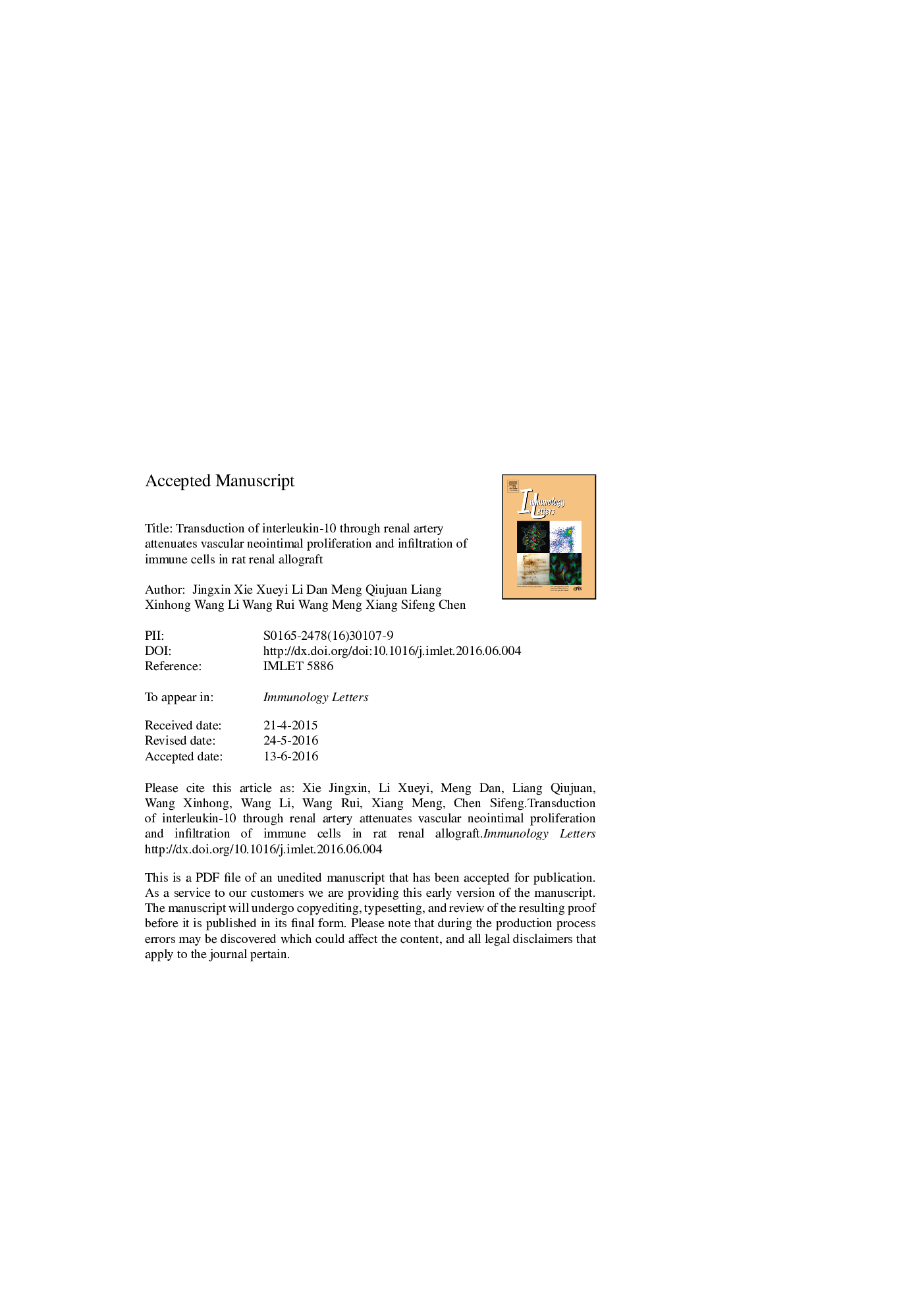| Article ID | Journal | Published Year | Pages | File Type |
|---|---|---|---|---|
| 6116979 | Immunology Letters | 2016 | 33 Pages |
Abstract
Renal transplantation is the treatment of choice for end-stage renal failure. Although acute rejection is not a major issue anymore, chronic rejection, especially vascular rejection, is still a major factor that might lead to allograft dysfunction on the long term. The role of the local immune-regulating cytokine interleukin-10 (IL-10) in chronic renal allograft is unclear. Many clinical observations showed that local IL-10 level was negatively related to kidney allograft function. It is unknown this negative relationship was the result of immunostimulatory property or insufficient immunosuppression property of local IL-10. We performed ex vivo transduction before transplantation through artery of the renal allograft using adeno-associated viral vectors carrying IL-10 gene. Twelve weeks after transplantation, we found intrarenal IL-10 gene transduction significantly inhibited arterial neointimal proliferation, the number of occluded intrarenal artery, interstitial fibrosis, peritubular capillary congestion and glomerular inflammation in renal allografts compared to control allografts receiving PBS or vectors carrying YFP. IL-10 transduction increased serum IL-10 level at 4 weeks but not at 8 and 12 weeks. Renal IL-10 level increased while serum creatinine decreased significantly in IL-10 group at 12 weeks compared to PBS or YFP controls. Immunohistochemical staining showed unchanged total T cells (CD3) and B cells (CD45R/B220), decreased cytotoxic T cells (CD8), macrophages (CD68) and increased CD4+ and FoxP3+ cells in IL-10 group. In summary, intrarenal IL-10 inhibited the allograft rejection while modulated immune response.
Keywords
Related Topics
Life Sciences
Immunology and Microbiology
Immunology
Authors
Jingxin Xie, Xueyi Li, Dan Meng, Qiujuan Liang, Xinhong Wang, Li Wang, Rui Wang, Meng Xiang, Sifeng Chen,
